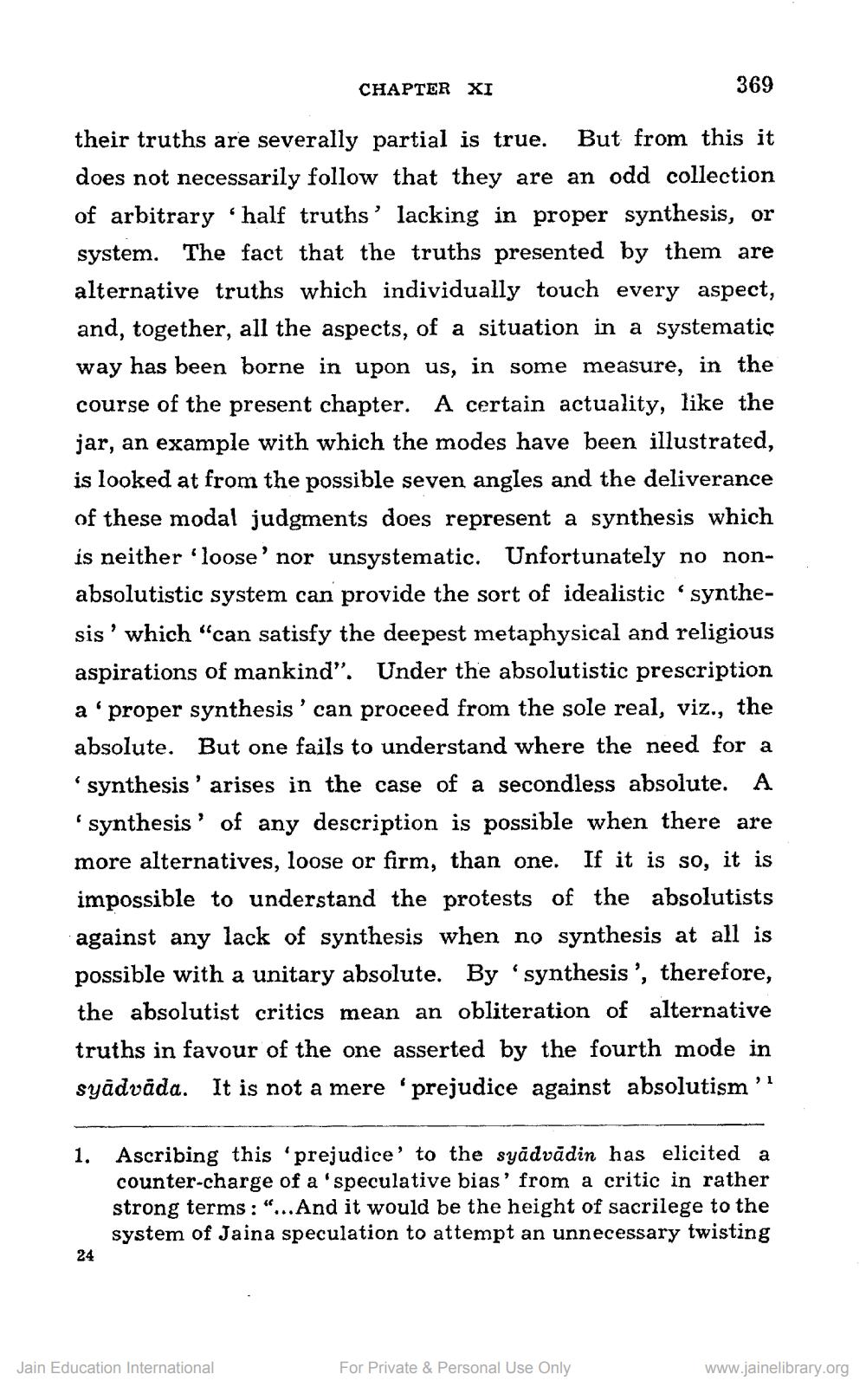________________
CHAPTER XI
369
their truths are severally partial is true. But from this it does not necessarily follow that they are an odd collection of arbitrary ‘half truths' lacking in proper synthesis, or system. The fact that the truths presented by them are alternative truths which individually touch every aspect, and, together, all the aspects, of a situation in a systematic way has been borne in upon us, in some measure, in the course of the present chapter. A certain actuality, like the jar, an example with which the modes have been illustrated, is looked at from the possible seven angles and the deliverance of these modal judgments does represent a synthesis which is neither 'loose'nor unsystematic. Unfortunately no nonabsolutistic system can provide the sort of idealistic synthesis' which “can satisfy the deepest metaphysical and religious aspirations of mankind”. Under the absolutistic prescription a proper synthesis can proceed from the sole real, viz., the absolute. But one fails to understand where the need for a synthesis' arises in the case of a secondless absolute. A
synthesis' of any description is possible when there are more alternatives, loose or firm, than one. If it is so, it is impossible to understand the protests of the absolutists against any lack of synthesis when no synthesis at all is possible with a unitary absolute. By 'synthesis', therefore, the absolutist critics mean an obliteration of alternative truths in favour of the one asserted by the fourth mode in syādväda. It is not a mere 'prejudice against absolutism'?
1. Ascribing this 'prejudice to the syādvādin has elicited a
counter-charge of a speculative bias' from a critic in rather strong terms: "...And it would be the height of sacrilege to the
system of Jaina speculation to attempt an unnecessary twisting 24
Jain Education International
For Private & Personal Use Only
www.jainelibrary.org




